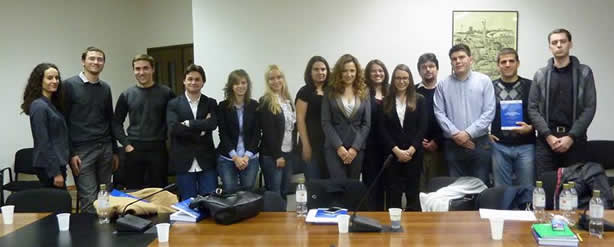OUR MISSION
Student Economic Law Review is an online legal journal published twice a year and run by students of the University of Belgrade Faculty of Law. The Review was established in autumn 2010 by Professor of Economic Law and Regulation Tatjana Jovanic and students who attended her workshop in the academic 2010/2011. The Review accepts contributions from undergraduate, graduate and doctoral students, from Serbia and abroad.
It is the first student-edited law review in Serbia, and as such has influenced the emergence of similar reviews in the region. However, it has some added values, in addition to its main goal: promoting students’ contributions to academic thought. The goal of the Review is to transform the gifted student from a mere receiver of legal education into an active creator of scholarly work and change agent in a society. More than a decade of experience has shown that publishing a paper is not only a validation of the quality of that particular piece of work, but also an opportunity to succeed in internship placements and job offers. Success stories of students as authors clearly certify that this Review is by itself an instrument fostering meritocracy in a transition society such as Serbian.

The Editorial Board (academic 2013/14)
The Editors strive to make the Review an useful publication not only to foster the development of learning and the possibility of young lawyers to publish their first papers, but has a broader mission and an acknowledged added value, engaging students as change agents in a society, wider than the university. Special or thematic issues of the Review are results of thematic collaborative writing groups, composed of students of undergraduate and postgraduate studies using metacognitive problem-oriented strategies and giving proposals in the policy making process in Serbia. Students act as experts and through collaborative working groups engage in a partnership with institutions of the Government/State, providing a thematic study as an input in the regulatory process – notably in the phase of public policy analysis (option analysis).


